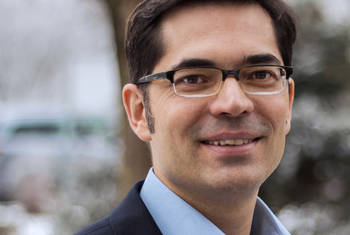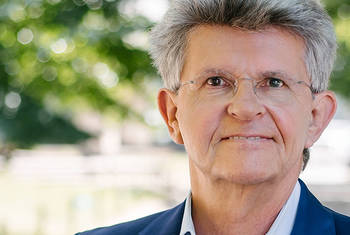Lei Li How Does the Importation of Machinery Impact Upon Human Capital Accumulation?
Lei Li is an Assistant Professor in the Department of Economics at the University of Mannheim. She is also a Research Affiliate of the German Institute of Labor Economics (IZA). She has previously completed postdoctoral research at the University of Zurich. Lei Li’s research focuses on international trade, labor economics and development economics. Having published research in both Chinese and in English, Lei Li has received several prestigious awards from Tsinghua University, where she completed her PhD (2016)
Area of Research
International Trade and Labor Economics
since 2019
Assistant Professor
University of Mannheim (Universität Mannheim) (more details)
Department of Economics
since 2019
Research Affiliate
Institute of Labor Economics (IZA)
2016-2019
Postdoctoral Researcher
University of Zurich (Universität Zürich)
2011-2016
Ph.D. in Economics
Tsinghua University, China (Summa Cum Laude equivalent)
2007-2011
B.S. in Finance and Mathematics
Beihang University, China
- Journal of Development Economics
- Journal of International Economics
- Journal of Labor Economics
- Journal of Public Economics
- Journal of Human Resource
Prizes
- Excellent Ph.D. Graduate Award, Beijing Municipal Education Commission (2016)
Fellowships
- Tsinghua First Class Scholarship (2015)
- Top Grade National Scholarship for Graduate Students (2015)
- Member: China Natural Science Foundation, “The Dynamic Relationship between Income” (2014-2016)
- Member: Tsinghua Research Fund, “Household Saving & Consumption in an Aging Society” (2015-2016)


University of Mannheim (Universität Mannheim)
Mannheim, GermanyFor generations, the University of Mannheim has been preparing students to take on leadership roles in business, academia, and society. One of the university’s strengths in this task is its profile, which is characterized by the economic and social sciences. It is in these fields that the University of Mannheim has repeatedly been ranked as one of the top 20 European research institutions. Key focuses of Mannheim researchers include decision-making processes and elections, governance, regulation, competition and innovation, migration and multilingualism, and the culture of change. The campus surrounding Mannheim’s baroque palace is a place where bright minds from across the globe come together to learn, discuss, research, and prepare to make their mark on the world.
Institute
The Collaborative Research Center (CRC) TR 224 – EPoS
The Collaborative Research Center (CRC) TR 224 – EPoS is a cooperation between the University of Bonn and the University of Mannheim. Funded by the German Research Foundation (DFG), it aims to analyze and provide policy proposals that address three key societal challenges: how to promote equality of opportunity; how to regulate markets in light of the internationalization and digitalization of economic activity; and how to safeguard the stability of the financial system.
Map
The share of Chinese people with college education and the wage premium that they earn has increased dramatically since 1990. In this video, LEI LI explores the factors underlying this and argues that it can be partially attributed to the importation of machinery. Analyzing population data from the 330 Chinese prefectures and exploring regional differences in machinery importation, Li finds that the importation of machinery is indeed a key driver in rapid human capital accumulation in China. Ongoing research will explore the policy implications of Li’s findings as well as the extent to which they apply to other developing economies.
LT Video Publication DOI: https://doi.org/10.21036/LTPUB10891
Skill-Biased Imports, Human Capital Accumulation, and the Allocation of Talent
- Lei Li
- Published in 2020








